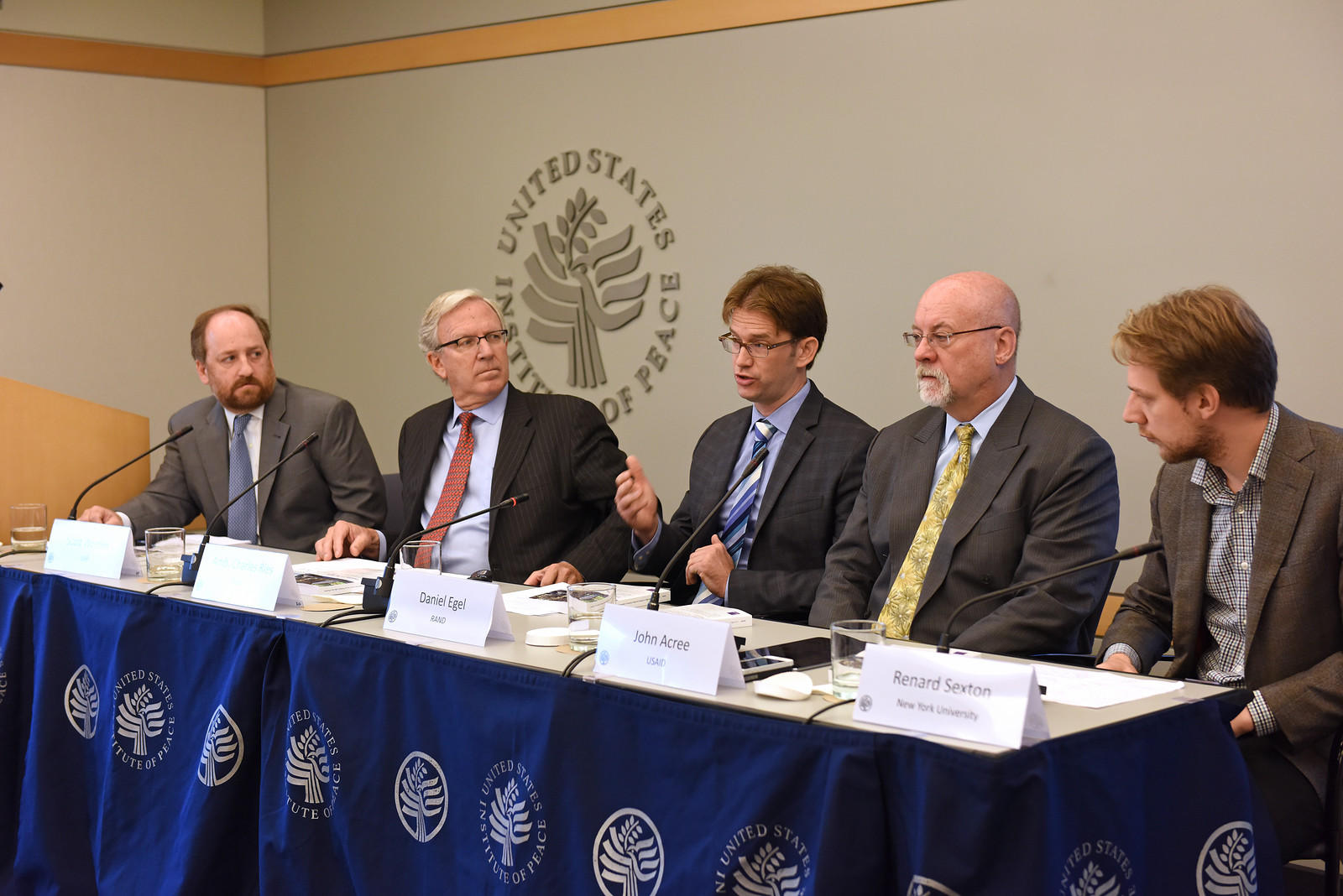RAND Study: 'Money as a Weapon' Works in Afghanistan
Assessing the Impact on the Ground of U.S. Commanders' Reconstruction Projects
U.S. forces in Afghanistan and Iraq have used a new tool in the past decade—millions of dollars spent by battlefield commanders for local relief and reconstruction projects. These projects have drawn criticism for gaps in financial accountability, but a new study from the RAND Corporation suggests they improved local security and led to reductions in hostilities. On October 13, the report’s authors, along with other experts, discussed their findings on the role in Afghanistan of the Commander’s Emergency Response Program (CERP)—and on ways that such programs can be improved.

The wars in Afghanistan and Iraq are raising new debate on their complex mixing of military operations and relief and development work. This includes CERP, which U.S. forces in Afghanistan have called “money as a weapon system.” Last year the U.S. government’s Special Inspector General for Afghanistan Reconstruction raised questions about the accounting for $2.2 billion in CERP funds. RAND experts Charles Ries and Daniel Egel have completed a study on the impacts of CERP projects in Afghan localities. Their research finds that CERP projects improved local economic conditions and security for Afghans, helped build U.S. forces’ rapport with local residents, and eventually led to reduced hostilities. The authors discussed their forthcoming RAND report, “Investing in the Fight: Assessing the Commander’s Emergency Response Program in Afghanistan.”
Panelists
Scott Worden
Director of Afghanistan, U.S. Institute of Peace
Ambassador Charles Ries
Vice President, International at RAND
Daniel Egel
Economist, RAND
Stephen Lennon
Director, USAID Office of Transition Initiatives
Renard Sexton
New York University



